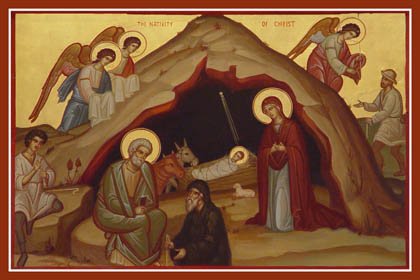 The readings assigned for our celebration of the Nativity of Christ, God Incarnate, are taken from Paul’s letter to the Galatians and a part of the infancy narrative in Matthew’s Gospel. They are not, perhaps, the readings that one would expect for this feast.
The readings assigned for our celebration of the Nativity of Christ, God Incarnate, are taken from Paul’s letter to the Galatians and a part of the infancy narrative in Matthew’s Gospel. They are not, perhaps, the readings that one would expect for this feast.
Our Epistle reading is taken from the fourth chapter of Paul’s letter and deals with “free sons of God in Christ,” which directly deals with the true meaning and impact of God’s Incarnation. Paul writes:
God sent forth his Son born of a woman … so that we might receive our status as adopted sons. The proof that you are sons is the fact that God has sent forth into our hearts the spirit of his Son which cries out “Abba.” You are no longer a slave but a son. And the fact that you are a son makes you an heir, by God’s design.
So our feast is not meant to focus on a real, historical event but, rather, to reveal to us what God intended by becoming a human. We get so caught up, sometimes, in the story of the birth of Jesus that we don’t recognize why God did what He did. He revealed that we are the heirs of His Kingdom. It calls us to live like God’s children.
Our Gospel reading also does not dwell on the historical event but, rather, God’s revelation to the world, through the astrologers, that He is very intimately connected to us, His creation. The story also shares, through the person of King Herod, the deception and self-centeredness that can possess humans who don’t want to change and who tend to hang onto their old ideas of what life is all about. This is one reason why God came into the world – to show us the truth about human life and how to live it in order to achieve, with God’s help, the meaning and purpose of this earthly life.
The story of the astrologers tells us two very important things: (1) they believed Jesus to be a king and (2) they brought Him gifts. The fact that they thought Him to be a King, highlights the recognition of Jesus by the Gentiles. The gifts are the products for which the East was famed. Myrrh is interpreted by the Fathers as being an omen of Jesus’ death – perhaps not without real reason for it occurs elsewhere in the New Testament only in this connection.
As we celebrate this glorious feast, we must ask ourselves: Do I see Jesus as God’s revelation to me about my life.
